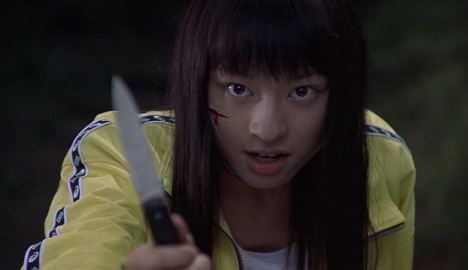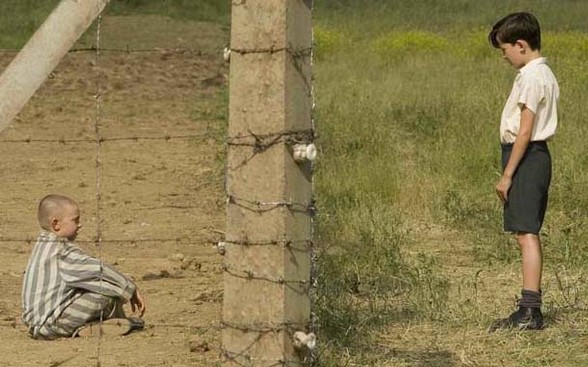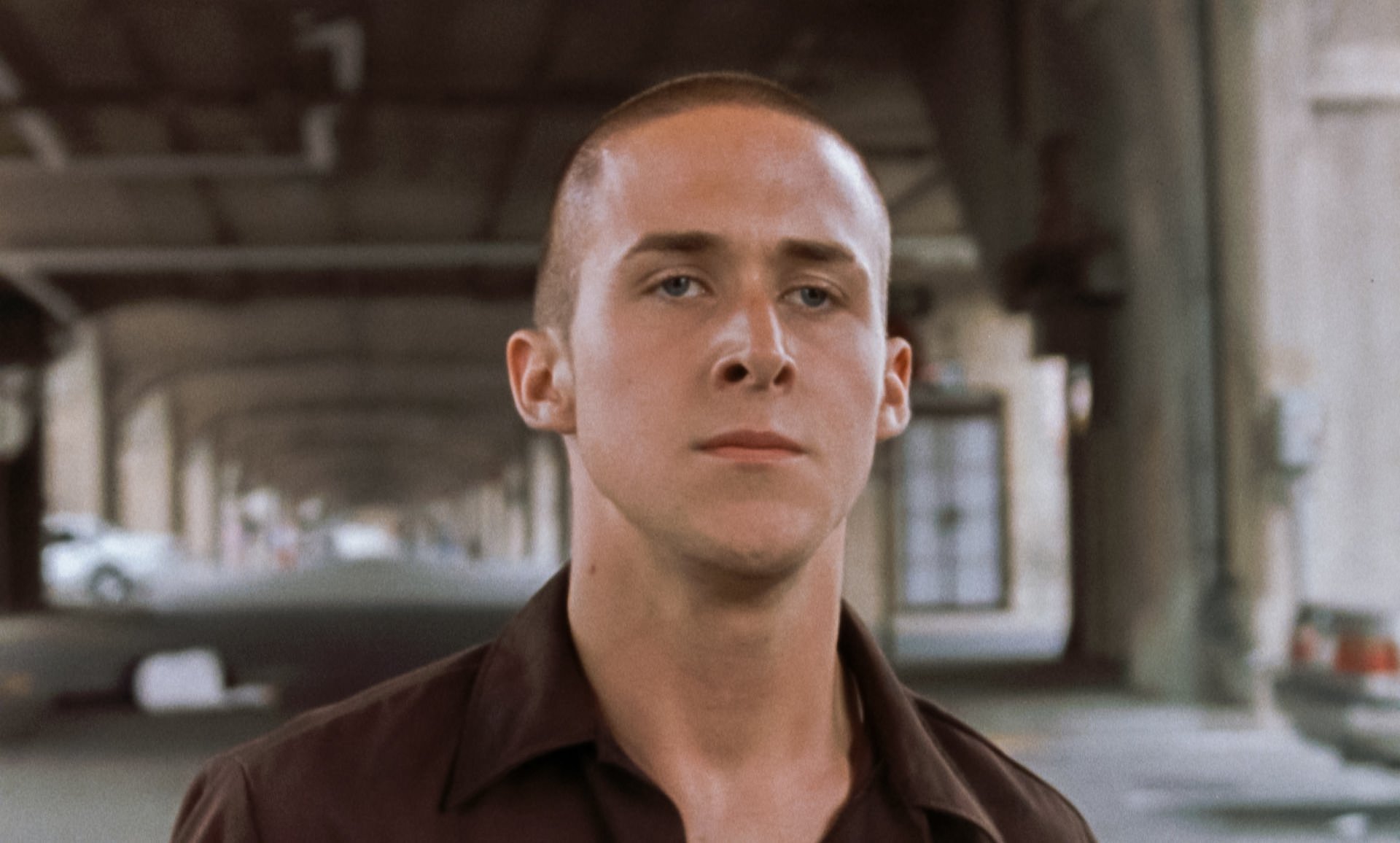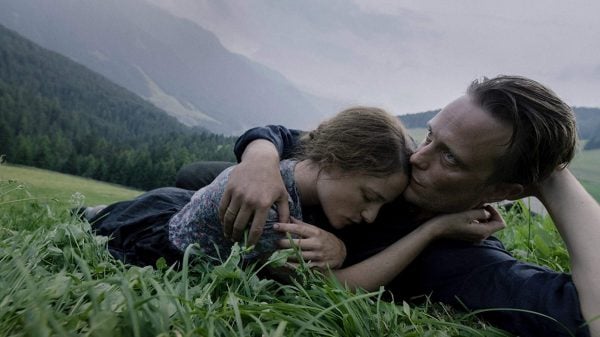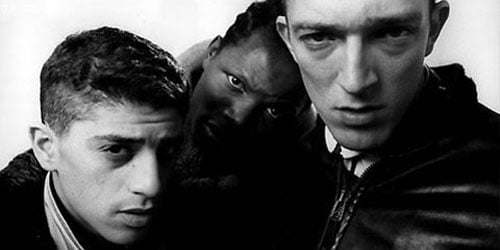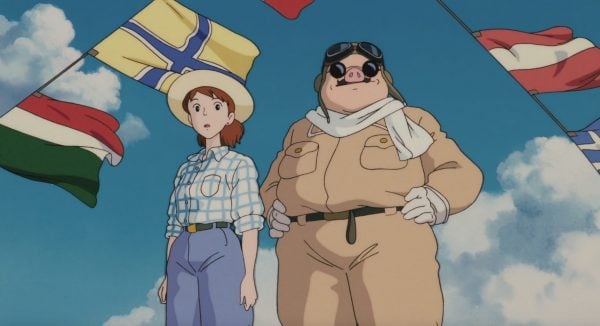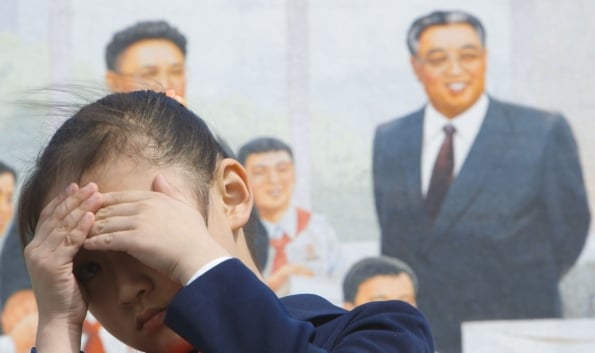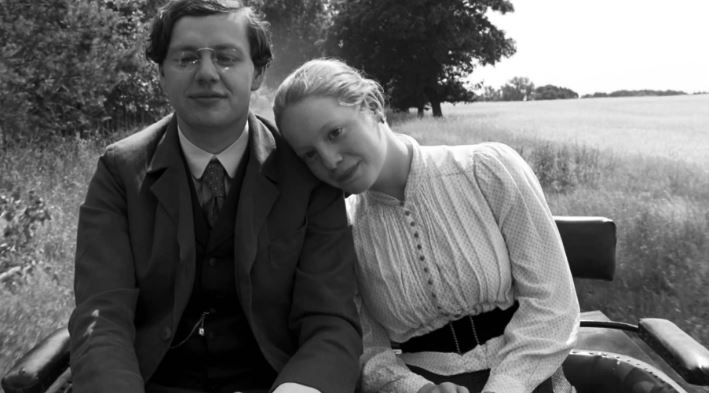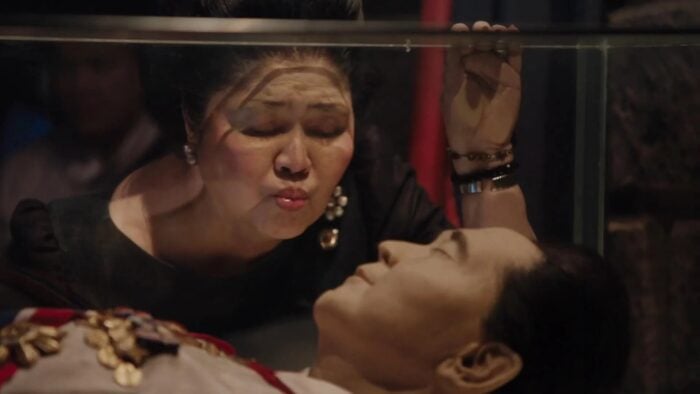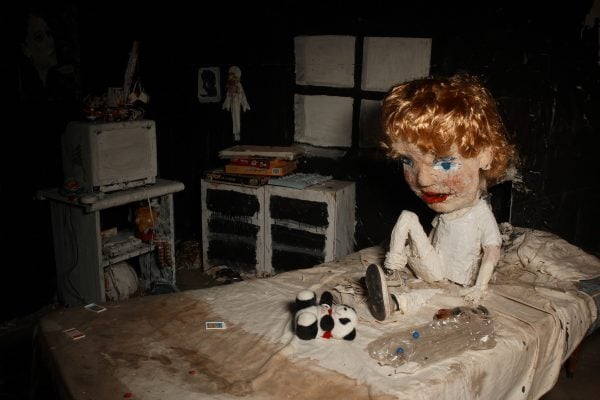
10 Best Anti-Fascist Movies to Watch
April 7, 2025
Share:
Long after the fall of Nazis and Francoists in the 20th century, right-wing organizations, authoritarian regimes, and just generally racist views continue to threaten democracies to this day. Fascism is far from over, but that also means that the sentiment against it is just as strong as ever.
Whether you’re looking for a refresher on the past or a sample of how the movement works today, we bring you the best anti-fascist films you can watch right now. In their own artful and moving ways, the movies below exhibit the immediate dangers of intolerance and the urgent things that can be done to fight against them.
Read also:
1. Battle Royale (2000)
Genres
Director
Actors
Moods
When asked about this film, Quentin Tarantino goes so far as to say, “If there’s any movie that’s been made since I’ve been making movies that I wish I had made, it’s that one.” Kinji Fukasaku’s cult classic follows an alternative reality set in Japan, where a random high school class is forced onto a remote island to fight to the death. While it does follow the quintessential ‘only one shall leave’ scenario (complete with over-the-top, almost comedic murder scenes), the raw emotion and character depth cuts far deeper than traditional action thrillers. The film will leave you out of breath but still satisfied with how the narrative plays out.
2. The Boy in the Striped Pajamas (2008)
Genres
Director
Actors
Moods
You’ve probably watched and heard about enough Holocaust films to expect a formula, but you might want to put all that aside going into The Boy in Striped Pajamas. Bruno, the son of a WWII Nazi commandant forms an unlikely friendship with a Jewish kid his age in his father’s concentration camp. The film is World War II told through Bruno’s eyes, and while you might not get why this movie is so highly praised in its first scenes, the twisting and profound second half will have you recommending it to everyone in need of a moving story well executed, or quite simply a good cry.
3. The Believer (2001)
Genres
Director
Actors
Moods
Ryan Gosling plays a Jewish Neo-Nazi in this extremely riveting window into the definition of inner conflict. It is a prime example of how character development should be done and it put Gosling on the map for me. He starts out as an exemplary student in Hebrew school until he starts questioning his teachings and exploring alternative ideologies, leading him to the neo-Nazi movement. Won the Grand Jury Prize at Sundance
4. A Hidden Life (2019)
Genres
Director
Actors
Moods
Terrence Malick (The Tree of Life) is back in full form with this three-hour movie based on a true story. His creation has one of the most beautiful depictions of happiness ever seen in film, portraying the simple yet joyous life of a farmer in the Austrian mountains. You’d have to see it for yourself to understand, but how Malick depicts this character’s love for his wife (and her love for him), their children, and even their farming rituals are nothing short of cinematic wizardry.
This peaceful existence changes when World War 2 intensifies and this farmer is called to serve for the Nazis. He refuses to enroll out of principle and puts himself and his family at great danger and alienation from their village. The question at the center of the film is one that other villagers and the church ask him a lot: what good can his actions do? And the title of the movie is taken from A George Eliot quote: “The growing good of the world is partly dependent on unhistoric acts; and that things are not so ill with you and me as they might have been, is half owing to the number who lived faithfully a hidden life, and rest in unvisited tombs.”
5. La Haine (1995)
Genres
Director
Actors
Moods
At the risk of being cliché, I’m going to state that only the French could have made a movie about racial issues and the troubles of youngsters in the suburbs and still make it elegant. I’ve tried looking for other adjectives, but I couldn’t find one that better describes those long takes shot in a moody black and white. But despite the elegance of the footage, the power of the narrative and the acting makes the violence and hate realistic as hell, dragging you into the story and empathizing with the characters until you want to raise your arm and fight for your rights. Aside from this unusual combination of fine art and explicit violence, the most shocking thing about La Haine is how much the issues it addresses still make sense right now, even though the movie was released 20 years ago.
6. The Wolf House (2018)
Genres
Director
Actors
Moods
This mortifying stop-motion fairy-tale is inspired by the very real horrors of Chile’s Colonia Dignidad: a cult colony turned torture camp under the Pinochet regime. Presented as colony propaganda, the tale tells the story of Maria, a girl who runs away from the safety of the colony into the forest and takes refuge in a house with two pigs. What transpires is a gut-wrenching allegory for the rise of fascism, colonialism, and white supremacy.
The staggering animation which seamlessly shifts mediums from paper mâché to painted walls is a bewildering sight to witness. But it’s the synthesis of this boundary-pushing art and the underlying horrors it depicts, that make this stand as an unmissable cinematic event.
7. Porco Rosso (1992)
Genres
Director
Actors
As impressive as Studio Ghibli’s collection of films are, I am still stubborn to believe that Porco Rosso is its most underrated film. Porco Rosso, directed by Hayao Miyazaki, is the story of a World War military aviator-turned-bounty hunter who has mysteriously been transformed into a pig.
Bright with humor, heart, and flight (Miyazaki is largely influenced and inspired by the art of aviation), Porco Rosso manages to also acknowledge and reckon with the horrors of war. It also boasts one of, if not the greatest, line in any Ghibli film: I’d rather be a pig than a fascist.
8. Under the Sun (2015)
Genres
Director
Actors
Moods
When Russian director Vitaly Mansky is commissioned by the North Korean government to make a documentary about an average Pyongyang child, he follows their every guideline. Except the end result, Under The Sun, is the complete opposite of what they had intended. For example starting every take earlier than they thought, he makes the documentary about the watchdogs around the child and other mechanisms of propaganda. He uses quiet storytelling to expose how brainwashing in a fascist regime takes place, and how the people caught in it function. May just be the smartest, most important film you can watch on North Korea.
Read also:
9. The White Ribbon (2009)
Genres
Director
Actors
Moods
This 2009 Palme d’Or winner is filmed beautifully in black and white by Michael Haneke. In equal parts mysterious and disturbing, it is set in a northern German village in between 1913 and 1914 where strange events start to happen seemingly on their own. The people of the village, who feel as if they were punished, try to investigate it as the events start affecting them one by one. As they speculate on who is behind the acts that never stop, the film unfolds its slow but captivating plot. A brilliant and unique movie.
10. The Kingmaker (2019)
Genres
Director
Actors
Moods
There is no shortage of resources—be it books, films, articles, or interviews—about the atrocities Ferdinand Marcos unleashed on the Philippines. And yet, in the years since his exile and eventual death, his family has returned to power in the country, winning the hearts and (manipulated) minds of the masses.
In The Kingmaker, director Lauren Greenfield (who earlier directed the equally revealing The Queen of Versailles) exposes how this came to be, with a focus on the titular kingmaker herself, Imelda Marcos. It’s chilling how much of Imelda’s stated goals in this documentary, which spans five years, have come true. History repeats itself, and Greenfield skillfully and delicately captures the delusion, irony, and blatant corruption of a family dead set on owning a country, as if it were another luxury to purchase (or in the case of the Marcoses, pocket).
Comments
Add a comment
Ready to cut the cord?
Here are the 12 cheapest Live TV streaming services for cord-cutting.
More lists
Lists on how to save money by cutting the cord.
Curated by humans, not algorithms.
© 2025 A Good Movie to Watch. Altona Studio, LLC, all rights reserved.
